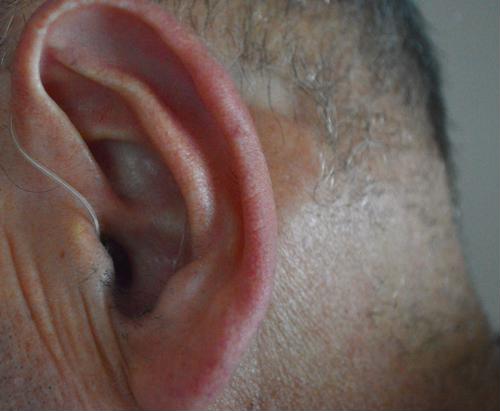The seemingly endless laundry list of human-made compounds can make anyone's head spin. It's hard to remember the most basic of chemicals, even if we regularly use them to stay healthy. For that reason, there's a good chance most people haven't heard of acetic acid.
Also known as Ethanoic acid, according to Encyclopedia Britannica, acetic acid is a relatively common chemical. In fact, household vinegar is mostly diluted acetic acid. However, the story of this substance extends well beyond the pantry. Acetic acid is also an important compound within the medical community.
That said, even the most helpful of chemicals can have serious side effects that users should know about. To fully understand what acetic acid is and what it does, let's explore further.
What is acetic acid used for medically?
Although Encyclopedia Britannica points out that the substance is used in everything from the production of plastic to the preparation of metal acetates, the area that the average person will most likely run into it is in a medical situation. Specifically, acetic acid is often prescribed to people suffering from ear infections.
WebMD points out that the medication works by halting the growth of fungus and bacteria around the outer ear. Essentially, the substance kills these infections. Additionally, the usefulness of this treatment is compounded by a drying agent. Wetness in the ear can allow foreign bodies like bacteria and fungus to spread, which can quickly spiral out of control. WebMD states that acetic acid medications are often supplemented by drying agents such as glycerin. This gives a one-two punch designed to kill the infection and stop it from coming back.
However, treating ear infections isn't the only thing this interesting compound can do. A study posted by Science Daily shows that acetic acid can also be an effective treatment for those who have suffered burns. The researchers found that the chemical is able to inhibit the colonization of organisms growing both planktonically and as biofilms. The scientists discovered that acetic acid was able to do this at far lower concentrations than was previously thought possible. Continued study into this area may broaden the scope of the chemical's usefulness.
Finally, acetic acid also has its uses within the urinary system. Acetic acid is utilized for bladder irrigation, specifically to get rid of any pathogens in the urinary tract. Ammonia-forming bacteria are the biggest problems that this treatment is meant to solve.
Is acetic acid dangerous?
While acetic acid clearly has a lot to offer the world, it's important to remember that it isn't perfect. Like just about every other compound, this one has side effects that users must be aware of if they are to be truly informed about their health.
WebMD states that you should never allow this substance to get in your eye or your mouth. It's also vital that you don't swallow it or allow anyone in your house to do so. Therefore, you'll want to store it away from any areas that a child can reach.
Additionally, you may feel a temporary stinging or burning of the ear canal when using it to kill an infection. While this is perfectly normal, it is important to contact a doctor if the feeling persists. A patient should talk to a doctor if they have severe pain, redness, or swelling in or around the ears. There is also a chance a person might be allergic to the substance.
Despite the potential side effects of acetic acid, it is perfectly safe if given the respect it deserves. The fact that the vinegar in your pantry contains a low concentration of it shows that something with a seemingly scary name can have a wide range of healthy benefits. Of course, the problems with this chemical begin at the higher doses. Since it's meant to be mainly used as a topical solution, users should be aware that any sort of ingesting of acetic acid beyond the prescribed method is dangerous to say the least. Even breathing in the fumes of a concentrated amount of this compound could prove unhealthy. Therefore, proceed with caution when handling the substance.



